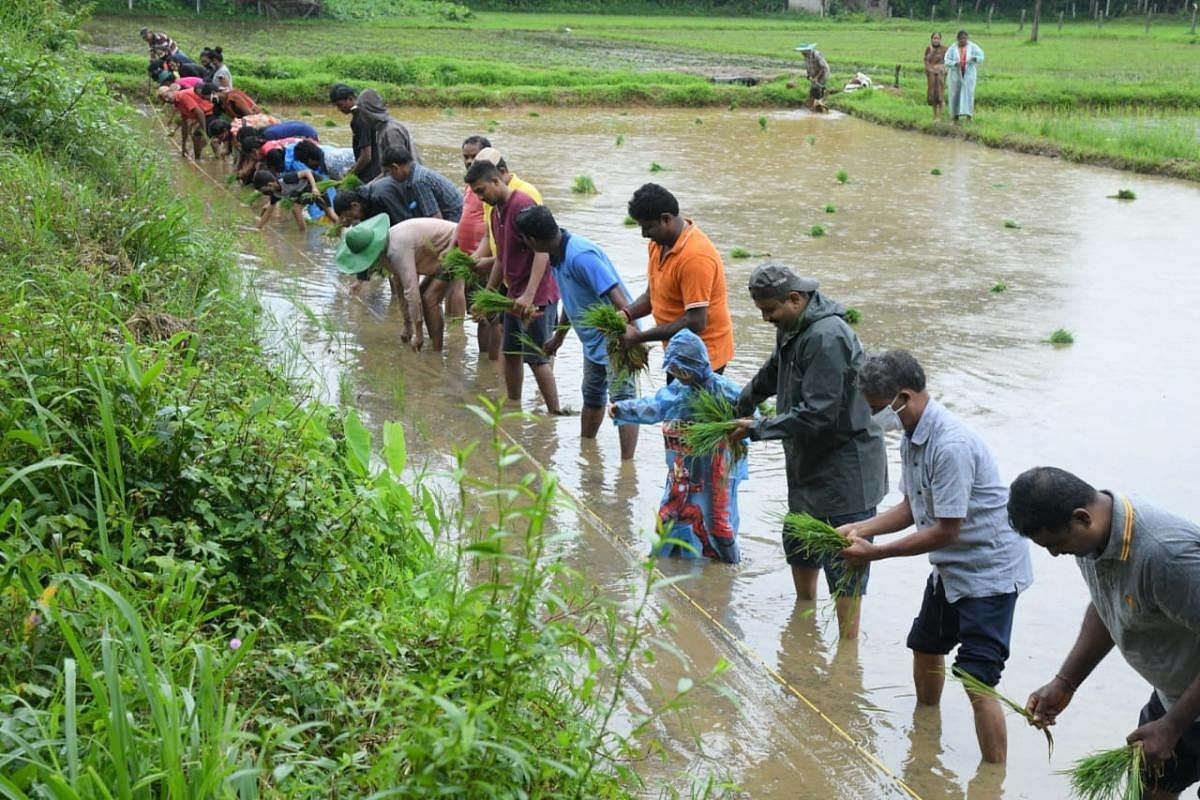
With thousands of youth returning to their native villages due to the Covid-19 pandemic, the agriculture department hopes that over 500 to 600 hectares of paddy fields that were left fallow will come under paddy cultivation during the season.
The area under paddy cultivation in Udupi district is 36,000 hectares. Already, transplantation of paddy seedlings was completed on over 28,000 hectares of land in the district.
“We are also noticing people showing interest in cultivating on paddy fields that were left uncultivated over the years due to shortage of labourers and other reasons,” Agriculture department Joint Director Kempe Gowda told DH.
Recently on account of the golden jubilee year of Nittur High School, the school authorities had taken up paddy cultivation on fields, around the school, that was left fallow. The parents and management of the school committee also participated in the paddy cultivation.
Similarly, cultivation on fallow lands was taken up at Kaup, Padukone and other areas in the district.
Due to shortage of labourers, hundreds of acre paddy fields were left fallow in the coastal district of Udupi. Owing to the lockdown and the Covid-19 pandemic, many youth who were working in hotels and other sectors outside the state had returned to their native and had shown interest in farming. Youth are now joining hands with their parents in their native villages, said officials from the agriculture department.
Kempe Gowda said due to good rains, the paddy transplantation in the district had picked up the pace. In the previous year, during this period, only 6,000 hectares of paddy transplantation was completed.
This year, it has crossed 28,000 hectares and the paddy transplantation will be completed in another few days in the district, he felt.
According to farmers, the monsoon had also entered the coast in the first week of June, which was also conducive for paddy cultivation.
The demand for paddy seeds had also increased in the district. About 2,518 quintals of seeds were sold in the district unlike the previous year’s 2,000 quintal seeds. The district also has a stock of 900 tonnes fertilisers. There is no shortage of fertilisers in the district, he added.